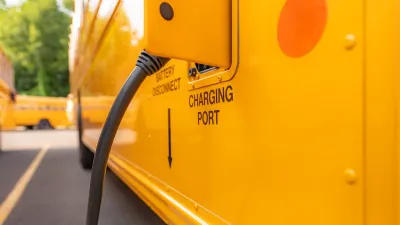Amidst the paradoxical increase in ridership demand, Yonah Freemark explores the plague of transit cuts reinforcing regional inequalities across the country.
Unfortunately, the draconian 35% service cuts announced by Pittsburgh's regional transit authority last week are the rule, rather than the exception, as cities across the country increase fares and cut routes, as they struggle with declining subsidies essential to maintaining operations.
"The counterintuitive result is that cities that are doing well economically are able to pay for improved transit services whereas those with many economic problems - the ones where transit is often needed most - are left to cut operations dramatically. Thus regional inequities are reinforced."
What is the path out of this vicious cycle of declining service and rising inequality? Freemark suggests two potential roads:
"Cities and states like Pittsburgh that are facing massive cuts in public services should absolutely call on Washington to increase its provision of aid to local governments, especially through operations support. But absent that - and in this day and age we cannot count on the Congress for much - raising local and state taxes is a serious option. It takes guts for public officials to promote tax increases, but we need to keep the trains and buses running."
FULL STORY: The Economic Crisis Rolls on in Cities like Pittsburgh

Alabama: Trump Terminates Settlements for Black Communities Harmed By Raw Sewage
Trump deemed the landmark civil rights agreement “illegal DEI and environmental justice policy.”

Planetizen Federal Action Tracker
A weekly monitor of how Trump’s orders and actions are impacting planners and planning in America.

The 120 Year Old Tiny Home Villages That Sheltered San Francisco’s Earthquake Refugees
More than a century ago, San Francisco mobilized to house thousands of residents displaced by the 1906 earthquake. Could their strategy offer a model for the present?

In Both Crashes and Crime, Public Transportation is Far Safer than Driving
Contrary to popular assumptions, public transportation has far lower crash and crime rates than automobile travel. For safer communities, improve and encourage transit travel.

Report: Zoning Reforms Should Complement Nashville’s Ambitious Transit Plan
Without reform, restrictive zoning codes will limit the impact of the city’s planned transit expansion and could exclude some of the residents who depend on transit the most.

Judge Orders Release of Frozen IRA, IIJA Funding
The decision is a victory for environmental groups who charged that freezing funds for critical infrastructure and disaster response programs caused “real and irreparable harm” to communities.
Urban Design for Planners 1: Software Tools
This six-course series explores essential urban design concepts using open source software and equips planners with the tools they need to participate fully in the urban design process.
Planning for Universal Design
Learn the tools for implementing Universal Design in planning regulations.
Clanton & Associates, Inc.
Jessamine County Fiscal Court
Institute for Housing and Urban Development Studies (IHS)
City of Grandview
Harvard GSD Executive Education
Toledo-Lucas County Plan Commissions
Salt Lake City
NYU Wagner Graduate School of Public Service




























